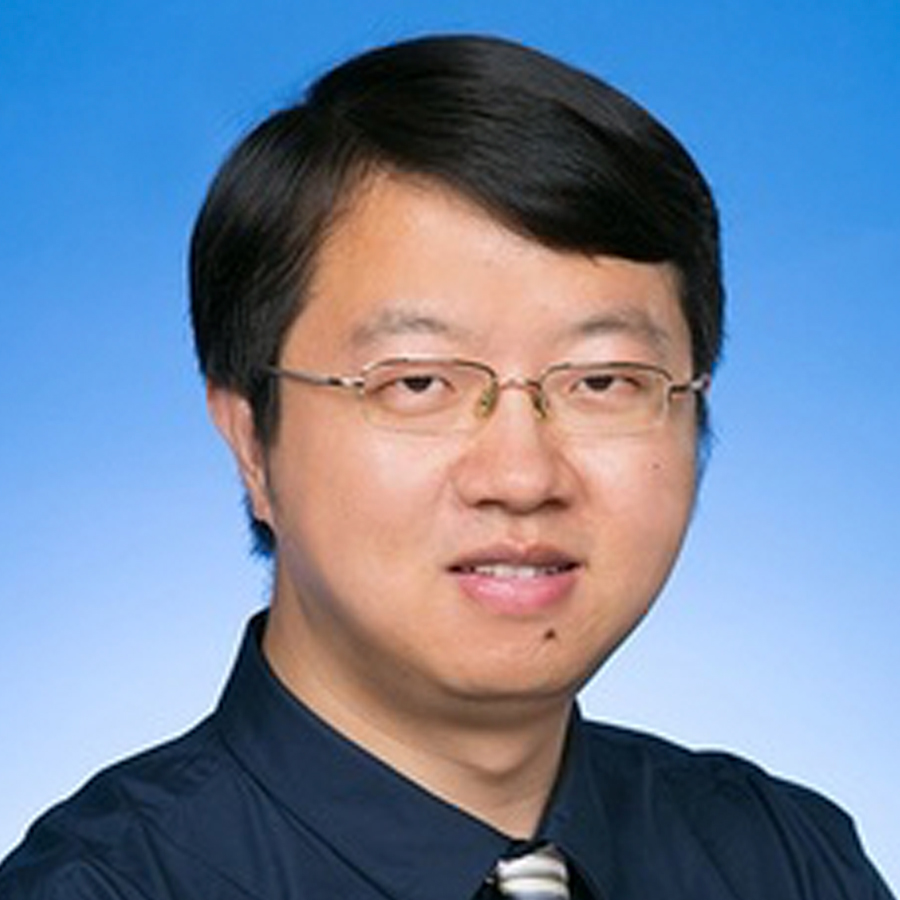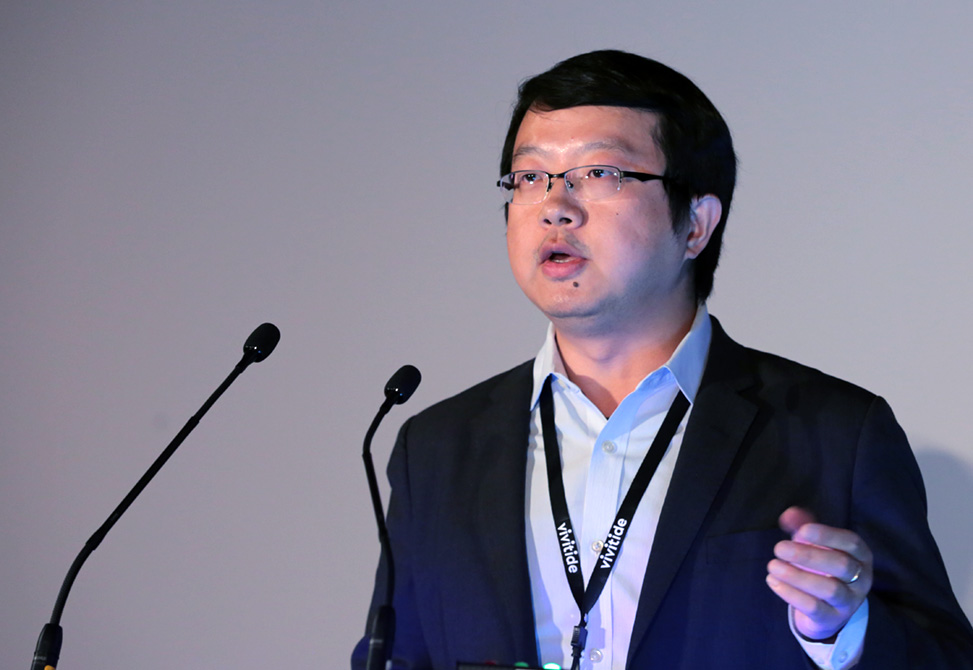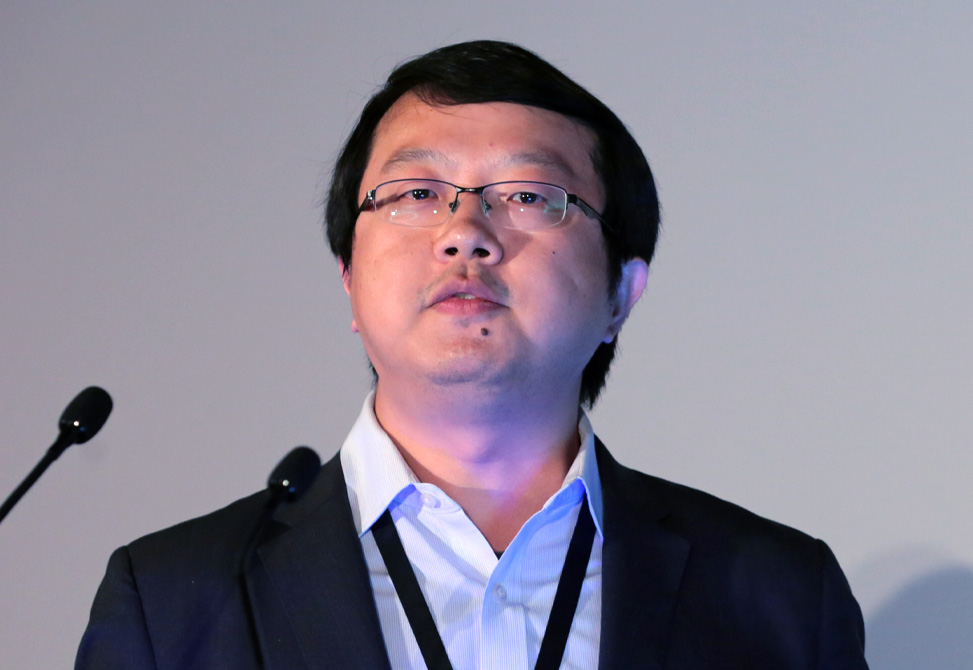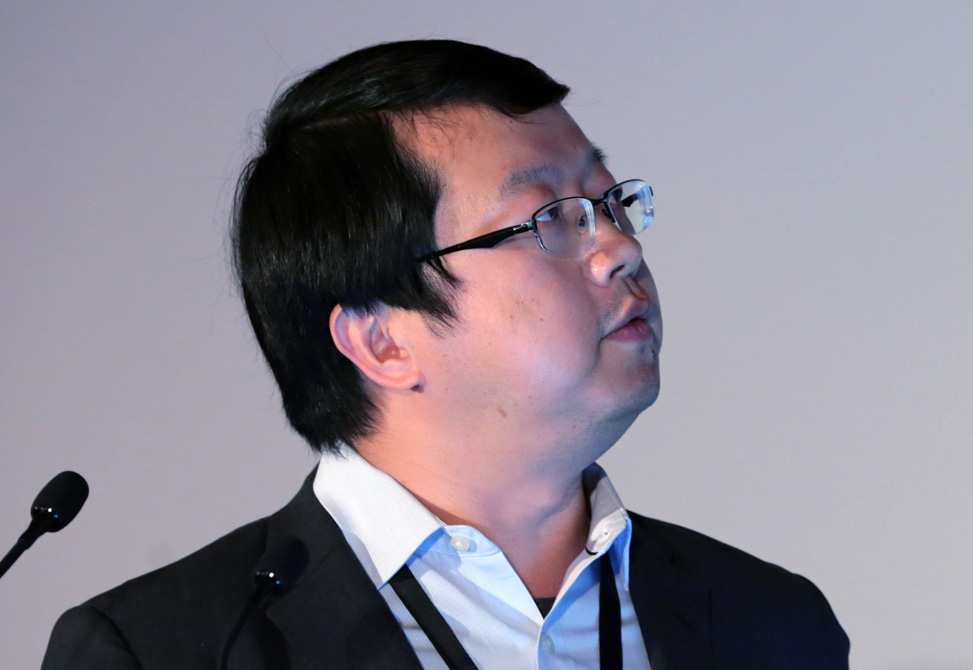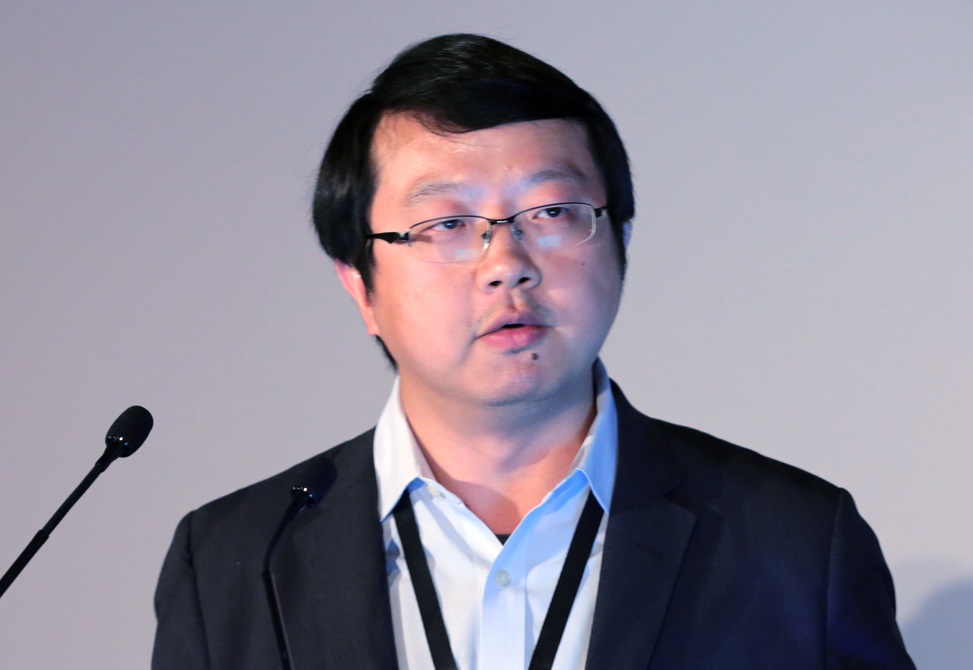Rongsheng, "Ross" Wang
Temple University
Talk Session: SESSION 2: NEW TOOLS FOR PEPTIDE AND PROTEIN CHEMISTRY
Date: Sunday, June 12, 2022
Talk Time: 11:00 am - 11:20 am
Talk Title: Fluorine-Displacement Based Probes to Interrogate Novel Protein-Protein Interactions
Research in our lab lies at the interface of chemistry and biology, with an eye towards understanding and treating human diseases. We use interdisciplinary approaches such as organic synthesis, biochemistry, chemical proteomics, protein engineering, cell biology, and molecular imaging to investigate the biological mechanisms underlying post-translational modifications that are key to cancer, neuron degeneration, and immune disorders. In particular, we are interested in synthetic chemistry methodology for novel bioorthogonal reactions, probe design and application for dissection of post-translational modifications on proteins.
We are also actively inventing novel diagnostics and therapeutics, using our expertise in chemical synthesis, protein engineering, drug delivery, library screening, cell assay, and animal models. Students have the opportunity to work in various areas spanning from organic synthesis to molecular biology/cell biology. The training is expected to help students achieve well-rounded skill sets and a strong publication record in either chemistry, biology, or chemical biology.
The dysregulation of post-translational modifications, PTMs, has been closely related to the onset and relapse of human diseases. Yet, many PTM-related non-histone proteins remain to be elucidated in terms of their identity, functions, and roles in cellular activities simply due to the lack of tools for characterization. Despite the development of bioorthogonal chemical reactions such as "click chemistry," few research programs have explored protein labeling or tagging with reduced steric.
Towards this end, my group has invented a steric-free bioorthogonal reaction, fluorine-thiol displacement, FTDR, and has developed a novel class of FTDR-based imaging and proteomics probes aimed at a complete dissection of substrate proteins of acetylation that are featured in diseased cells such as cancer cell lines; which for now cannot be systematically profiled due to steric limitations in the current chemical proteomics approach.
Concurrently, to facilitate the studying and targeting of any new protein-protein interactions, PPIs, to be revealed by the aforementioned research investigations in PTM signaling, we also exploited other tool probes such as peptide stapling based on the FTDR reaction. The resulting peptides possessed improved folding, stability, and on-target affinity, but also displayed enhanced cell penetration than the peptides stapled by traditionally used ring-closing metathesis.
